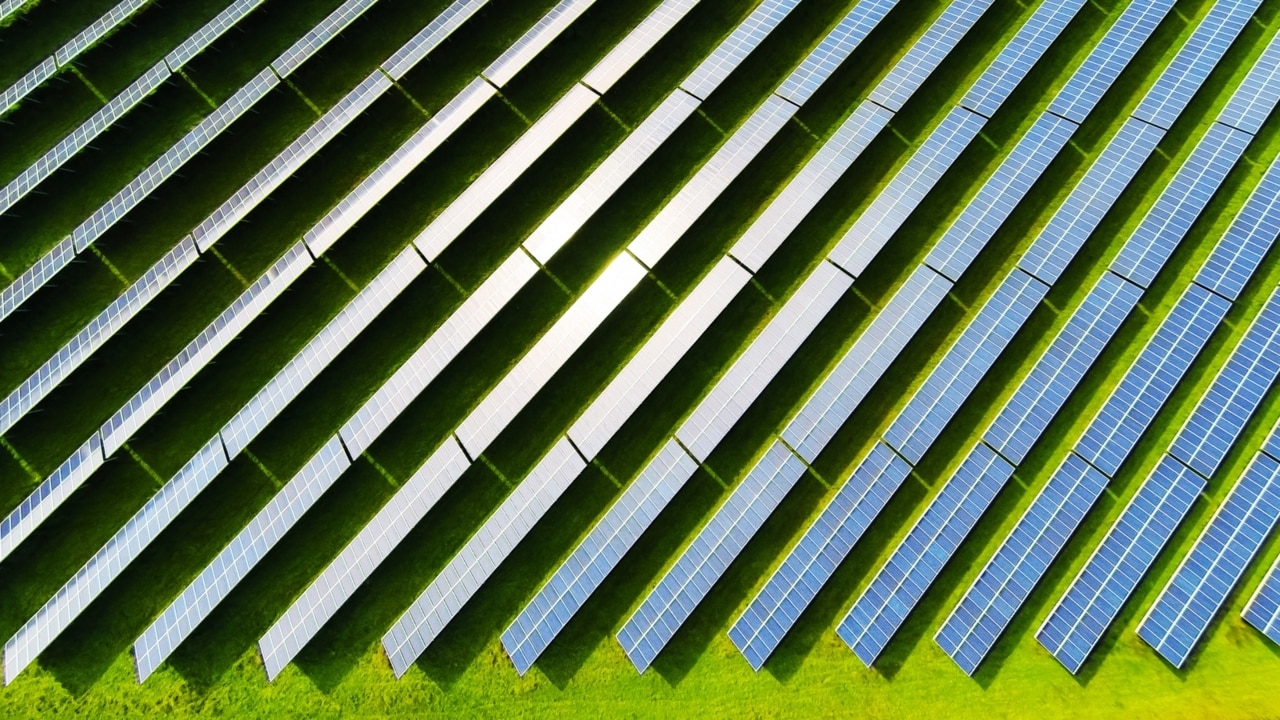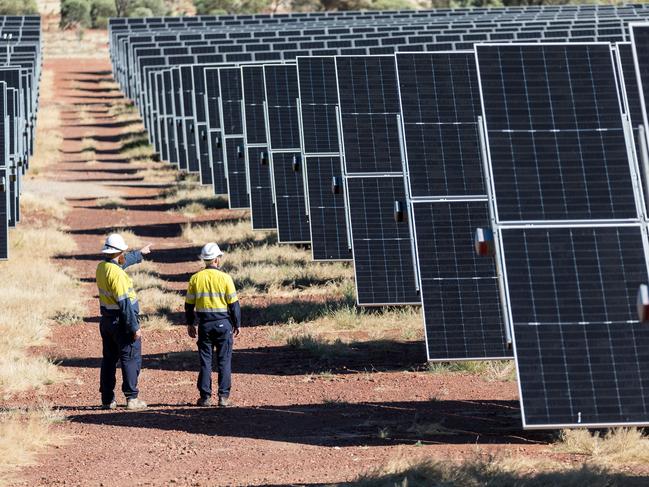Queensland Conservation Council report finds wholesale energy prices lowering but savings yet to be passed on
A recent report found that more than one million rooftop solar installations and large-scale renewable projects in Queensland have significantly brought down average wholesale power prices, however homes are yet to reap the full extent of the benefits.

Business
Don't miss out on the headlines from Business. Followed categories will be added to My News.
A recent report has found the rise in Queensland’s renewable energy projects has significantly lowered the wholesale price of energy, however households are yet to reap the full extent of the savings.
The Queensland Conservation Council report found that Queensland’s more than one million rooftop solar installations and large-scale renewable projects have brought down average wholesale power prices in 2023 by $117/MWh which would equate to an average saving of $400 per household if they were passed on by electricity retailers.

Despite this, Default Market Offer energy bill prices are expected to increase in South East Queensland by 2.7 per cent from July.
“Wholesale electricity prices have been slashed in half since rolling breakdowns at coal-fired power stations and inflated global coal and gas prices caused them to spike in 2022,” QCC’s energy strategist Clare Silcock said.
“Our analysis found that renewables are a significant part of the reason why wholesale prices are coming down for all Queenslanders. When renewables were generating more than 70 per cent of Queensland’s electricity supply the average wholesale electricity price was - $25/MWh.
“Unfortunately, there is a delay in wholesale electricity savings trickling down into retail power bills, if they get passed on by retailers at all.
“We’ve seen with the recent draft Default Market Offer energy bill prices are expected to increase in south east Queensland by 2.7 per cent from July.
“This is significantly less than the price hikes over the previous two years, but even so our report shows that retailers will likely make significant profits in 2024-25 through savings they are not passing onto consumers.”

Ms Silcock said there were a number of factors which meant households hadn't seen the benefits of whole sale price drops.
“The increase in renewable energy has really slowed the increase in price rises,” she said.
“We’ve seen fossil fuel prices sky rocket since the Russian invasion of Ukraine and the fact we have so many renewable energy plants coming along is what is bringing those prices back into line.
“In Queensland in the next financial year there will be a slight rise in the default market offer and that’s partly inflation and partly underlying risk and the way that retailers manage their risks.
“Wholesale prices are low and are getting increasingly lower as more renewable energy comes into the system, but there is still risks of higher prices if our ageing and unreliable coal fired power stations go offline like we’ve seen at Callide C and retailers are managing that risk by not passing the wholesale prices onto consumers yet.
“In the past year wholesale prices have been a lot lower when there’s been more renewable energy in the system but unfortunately the retailers aren’t confident enough that it will be continue to be case and there might be isolated price spikes due to high demand or failures at the coal fired power stations.
“Other reasons why energy bills are remaining high include inflation and the continued risk of future price spikes driven by extreme weather.”

This report comes as the Queensland Liberal National Party faces a test on their support for Queensland’s energy transformation, with the Energy (Renewable Transformation and Jobs) Bill 2023 likely to be voted on in the coming months.
“There are three main pillars of the bill, one is the renewable energy targets of 70 per cent by 2032 and 80 per cent by 2035, another pillar is retaining public ownership of Queensland electricity supply which is crucial in ensuring Queensland consumers can access the benefits of cheaper renewable energy and a worker guarantee for workers in the fossil fuel power stations,” Ms Silcock said.
Ms Silcock said Queensland was on track to reach the 80 per cent renewable energy target which would see home electricity prices drop in the long run.
“The key to lower power prices is building more renewable energy backed by storage to bring down wholesale prices further and safeguard the grid from further outages at our ageing coal-fired power stations,” Ms Silcock said.
“In Queensland we have 13 large scale wind and solar projects likely to put us on the path to hit the targets for renewable energy by 2032 and 2035, what we need to see is more regulation and community engagement to make sure they are delivered well for nature and community but the investment in the technology is currently there.
“We will need a lot of storage to move energy long term. The large scale batteries that are online are very useful and profitable in taking power in the middle of the day where it is almost negatively priced into the peak evening periods.
“There are a number of batteries under construction because people are seeing this as market opportunity and as we get closer to the 80 per cent renewable target we will need longer duration storage.
“That’s why we’re calling for bipartisan support for Queensland’s renewable energy targets and transition plan, so no matter who wins the October state election, Queenslanders are experiencing the benefits of renewable energy.”




